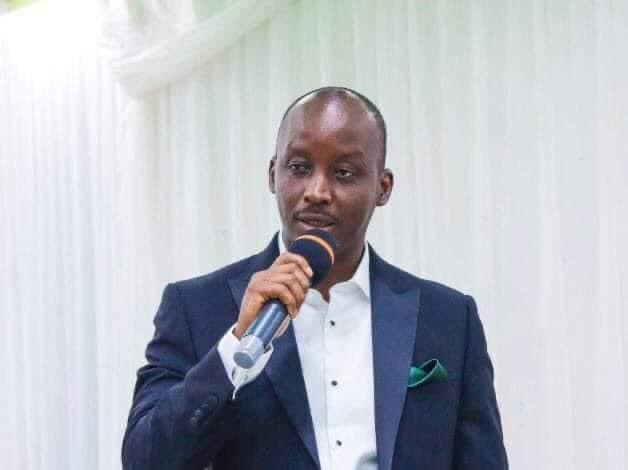The Gento gaffe has been the subject of several press releases and discussions over the week. Once again, it brought to the fore the extent of our polarised politics, as people across the divide engage in the usual attack-defend game. With such political matters, we easily get stuck in the -right-or-wrong debate, ignoring the need to look beyond good and evil and appreciate the full picture. The Gento gaffe is a rude reminder of the enduring pathologies of our politics. Ethnicity, religion, money and frivolities constitute our political reality. And this is not unique to us as a country. Stepping away from the event allows us to trace the roots and better situate the gaffe within our politics. Statements like the one that was expressed in a place of worship should worry us as we go into elections. This is especially so with the rising pressure that social media garners when utterances like these become publicized. This is also an opportunity to examine related issues.
When Mohamed Gento Kamara, who is running for Mayor under the banner of the ruling Sierra Leone People’s Party (SLPP) took to the podium in a masjid in Kissy, Freetown, he employed very shameful ethno-religious rhetoric in his address to the congregation. Such unguarded statements from someone who is vying to lead the capital—a national melting pot—do not only show insensitivity, but a lack of respect on many levels. His statement has been widely condemned and he has since tried to clarify the unclarifiable. We would leave it there and focus on the other related issues.
In Sierra Leone, it is common for politicians to use ethnic sentiments to win votes. In a video that went viral last year, President Bio sat in his State House office and used the Mende language to directly address the Mende people. He has also been seen addressing gatherings in Mende. There is nothing wrong with someone speaking their mother tongue, but it is also an effective way of othering society and alienating people who do not belong to the ethnic group in question. Doing it in the State House is even more discomforting. The flagbearer of the APC, Samura Kamara has also accused the ruling government of turning the public service into an outfit that only employs a certain ethnic group. He said this as he was addressing a group of supporters in the north of the country. What that essentially does is heighten ethno-political tensions and hatred among the gullible followers. Ernest Bai Koroma’s government was accused of doing the same thing when he took over power.
Whether in opposition or government, when politicians lack a strong track record or a convincing development programme, they use all sorts of sentiments. The “I-am-one-of-you” rhetoric has been used over and again. Lacking a clear message and programme, and being aware of the gullibility of their audience, politicians usually try to appeal to the heart and avoid the head. Some have argued that this is just the nature of our politics and rightly so. But our politics is also expected to evolve and not get frozen in time.
Another problem that the Gento gaffe exposes is the hypocrisy of the Inter-Religious Council. The Council was quick to make a statement, condemning Gento’s bigotry, which surprised everyone who thought the Council was in a coma as it relegates itself to ceremonial functions and press releases that shy away from issues that make powers uncomfortable. They probably used all their energy to fight against the right to safe abortion Bill. A body as influential as the Inter-Religious Council has failed to condemn police brutality, even as dozens of civilians were killed in the August 10 protests last year and subsequently boxed up and mass-buried in an undignified burial. Their silence has been equally loud on other killings and human rights violations around the country over the last five years. A paradox in prolife—the fetus must live but the living can be killed by the State without quibble. Let us hope that the recent Gento gaffe has helped the Inter-Religious Council find their important voice again and they be vocal on critical national issues.
Places of worship have become all-too-familiar campaign grounds for our politicians. All of them flock to mosques and churches to “pray” with the congregation—prayers that end up disrupting the regular functioning of places of worship. Religious leaders have allowed themselves to be used by political power, instead of being the check and guide that they ought to be, and the Inter-Religious Council has been complicit. You can be assured of a biblical or Quranic reference and justification for this behaviour but say what you may, politicizing places of worship and sundering them to politicians undermine people’s faith in religious leaders and their ability to serve as moral guarantors. When they cosy up to political power, they make themselves an object of power, instead of the strong force that weighs in and serves as the conscience of a polarised society. You would hope that the Gento gaffe triggers reflection and accountability among religious leaders beyond an event-based press release. Mosque en church norto place for campaign. Start there!
And then there is civil society. Many that were quite vocal and critical of the previous administration and enjoyed the overwhelming support and confidence of the public have disappeared from the country’s political discourse, dealing only with the uncontentious issues and shying away from what may be perceived as controversial and upsetting to the powers that be. Others have confined themselves to convenient areas of work, leaving serious gaps in the advocacy of human rights and governance. Issues that once united civil society in condemnation no longer seem to interest them, unless it is deemed less controversial or concern a not-so-powerful member of the public. For example, civil society organisations and women’s groups have been quiet even after dozens of girls and women were hurt and some hospitalised in two incidents organised by the First Lady in Freetown and Bo. As such events continue around the country without any regard for the dignity, health and safety of the girls civil society organisations remain m-u-t-e. And many have also been quiet on the recent Gento gaffe which has serious implications for our long-held, cherished and admirable religious coexistence. These are only a couple of examples—the list goes on. You would wish that the Gento gaffe pushed civil society to act as it did the Inter-Religious Council. Organised civil society is becoming as disappointing as organised religion—all thanks to politics.
Before this becomes too long for a very busy public, let us summarise by stating that the Gento gaffe is nothing new and it is an unfortunate peculiarity that has long characterised our politics. It reminds us though, of the dangerous simplicity and backwardness of our politics and most of the people who get into that space. The bigger problem is our attitude to such issues when they arise. political parties, religious leaders, regulators, the media and the rest of civil society must be unequivocal in their condemnation regardless of who is behind it.
Whatever you are up to this weekend, mind your words.


